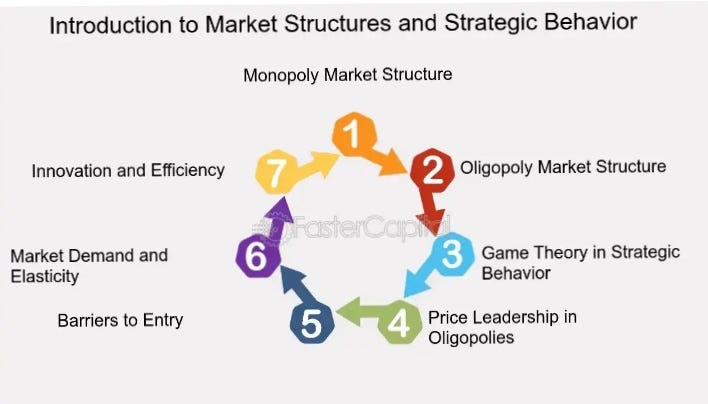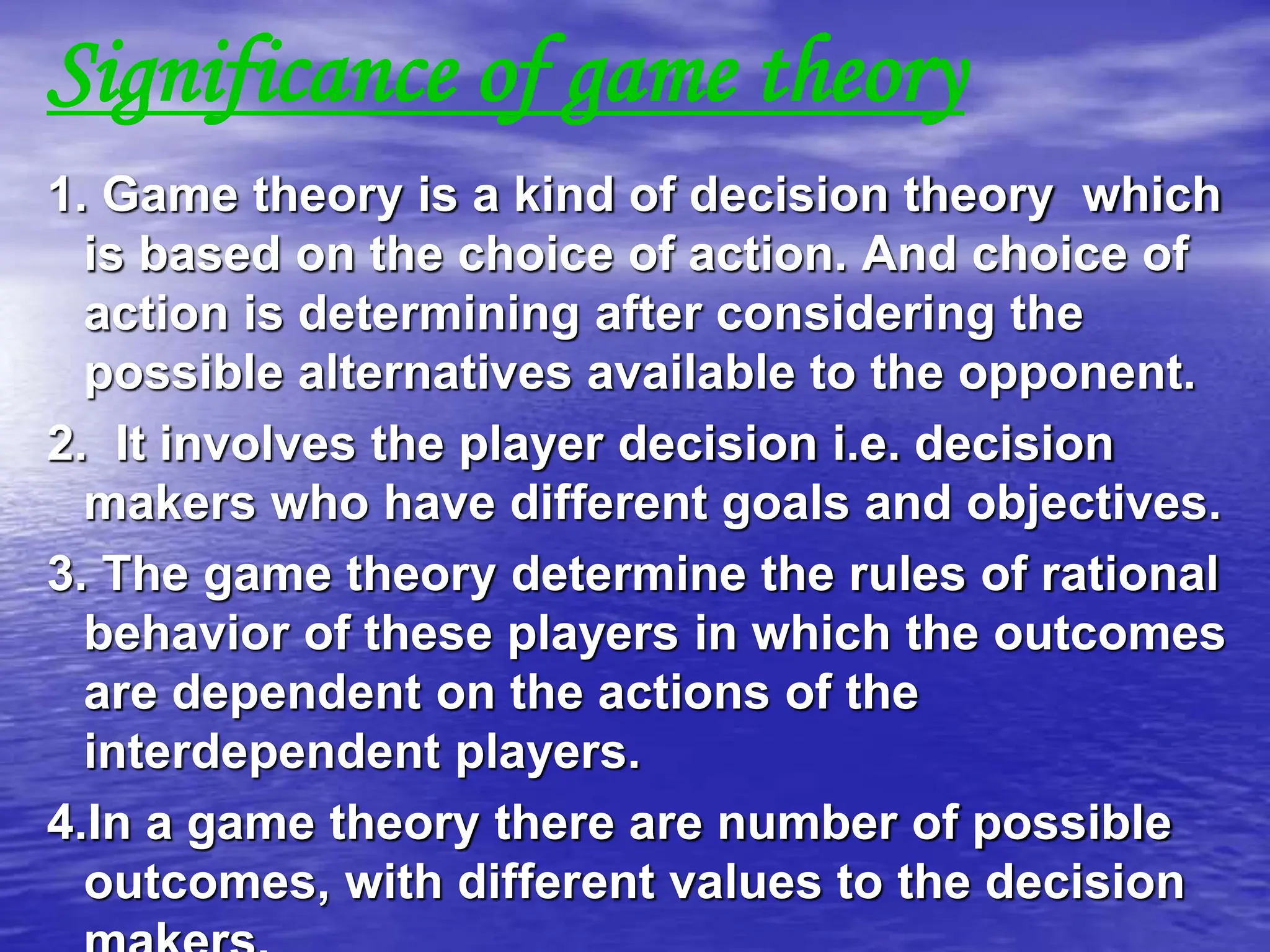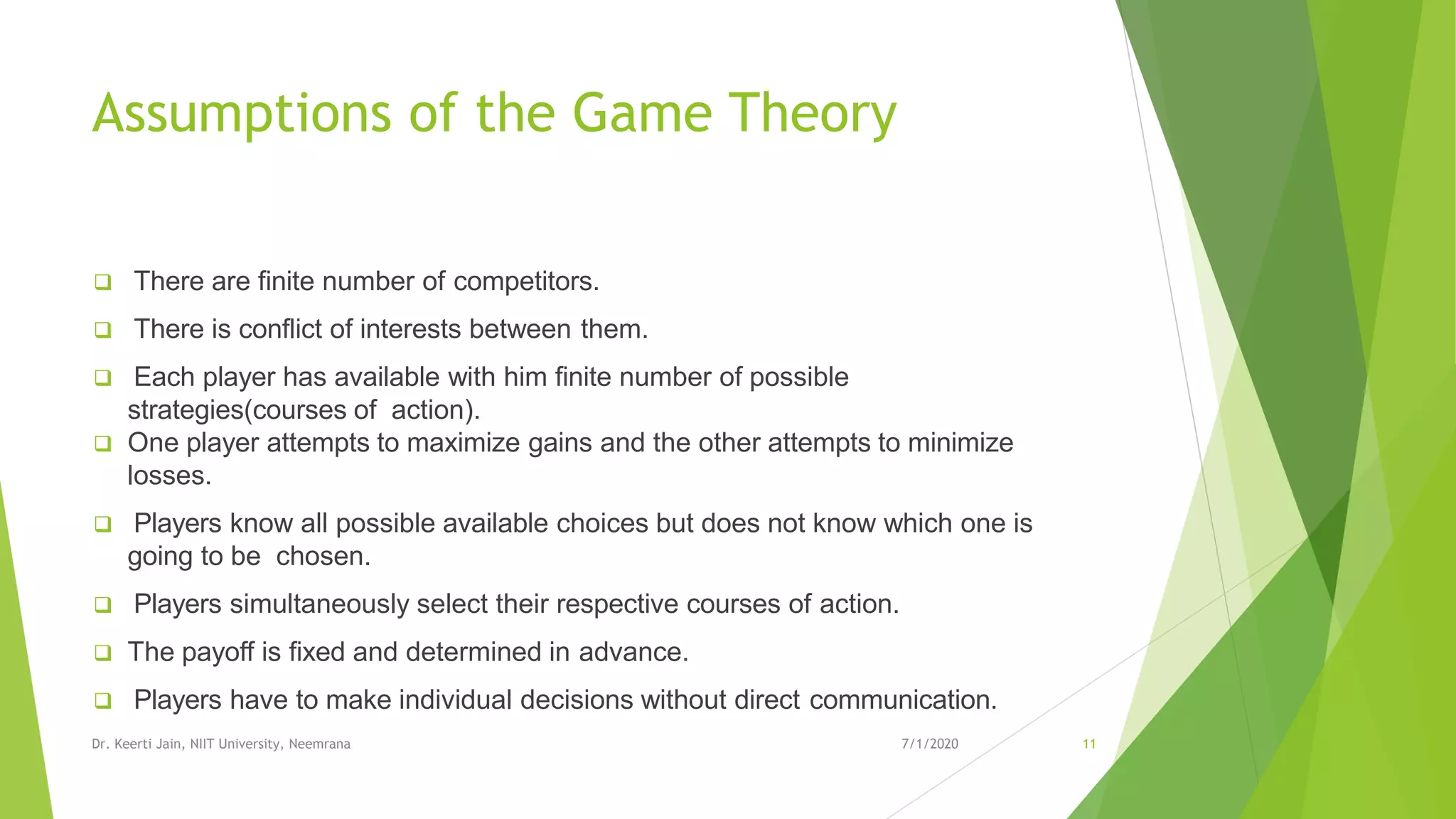Have you ever wondered why sometimes even the smartest decisions don’t lead to the best outcomes? Game theory promises to help you make better choices by predicting how others will act.
But it’s not perfect. Understanding the limitations of game theory can save you from costly mistakes and help you use it more wisely. You’ll discover where game theory falls short and why knowing these gaps matters for your decisions—whether in business, negotiations, or everyday life.
Keep reading to see how uncovering these limits can give you a real edge.

Credit: medium.com
Assumptions In Game Theory
Game theory uses several key assumptions to model strategic situations. These assumptions simplify complex human behaviors and interactions. They help create mathematical models but also limit real-world application. Understanding these assumptions reveals why game theory may not always predict outcomes accurately.
Rationality Of Players
Game theory assumes all players act rationally. Players aim to maximize their own benefits. They think carefully about their choices and outcomes. This assumption ignores emotions and mistakes. People often act irrationally in real life. Fear, trust, or lack of information can affect decisions.
Complete Information
Players are assumed to have complete information about the game. They know all possible actions and payoffs. This means no secrets or surprises exist. Real situations often involve hidden information or uncertainty. Players may guess or bluff, which game theory does not fully cover.
Static Vs Dynamic Games
Game theory divides games into static or dynamic types. Static games happen once, with all players acting simultaneously. Dynamic games involve multiple steps and changing information. Many real problems are dynamic and complex. Models based on static games miss time and learning factors.

Credit: www.slideshare.net
Complexity And Computation
Game theory studies how people make choices in competitive situations. It uses math to predict what might happen. But the math can get very hard. As more players join, the choices grow. This makes the problems complex and tough to solve. Computers help, but they also face limits.
Difficulty In Predicting Outcomes
Predicting results in game theory is not always clear. Many players and options create many possible endings. Small changes in one choice can change everything. This makes it hard to know what will happen next. Sometimes, no clear best choice exists for players.
Computational Limitations
Computers solve game theory problems but face big challenges. Complex games need lots of time and power to analyze. Some problems take too long to compute, even for strong computers. This slows down finding useful answers. Simple models work better for computers.
Scalability Issues
As games grow larger, models struggle to keep up. More players and moves mean more data to process. This makes the math and computing much harder. Many game theory methods work well only for small games. Scaling up can cause errors or slow results.
Real-world Applicability
Game theory offers useful tools for understanding strategic decisions. Yet, applying its models to real life can be tricky. Real-world situations often differ from the neat, controlled settings in game theory. This section explores some key challenges in using game theory beyond theory and labs.
Human Behavior Variability
People do not always act logically or predictably. Emotions, biases, and mistakes affect choices. Game theory assumes rational players who aim to maximize gain. Reality shows diverse behaviors that deviate from this ideal. This variability makes it hard to model real decisions accurately.
Incomplete Or Imperfect Information
Game theory often relies on knowing all players’ options and payoffs. Real situations rarely provide full information. Players may not know others’ intentions or available strategies. Missing or hidden information changes the outcomes and strategies. This gap limits the accuracy of game theory models.
Changing Environments
Game theory assumes stable rules and payoffs during play. Real environments evolve constantly. New technologies, regulations, or social norms shift conditions quickly. Players must adapt to these changes, which complicates predictions. Static models struggle to capture this dynamic nature.
Equilibrium Concepts Limitations
Equilibrium concepts are central to game theory. They help predict how players behave in strategic situations. These concepts assume that players know the game and act rationally. Yet, they have important limits that affect their usefulness.
Equilibrium concepts often struggle to give clear answers. Some games have many possible equilibria. Others face issues with which equilibrium players will choose. Stability of these equilibria can also be a concern. These challenges make it hard to apply game theory directly to real life.
Multiple Equilibria Challenges
Many games have more than one equilibrium. This creates confusion about which outcome will happen. Players may find it hard to decide on a strategy. Different equilibria can lead to very different results. This limits the ability to make exact predictions.
Equilibrium Selection Problems
Choosing the right equilibrium is not always clear. Players may lack information about others’ choices. Cultural or psychological factors can influence decisions. No universal rule guides players to one equilibrium. This makes equilibrium selection uncertain and complex.
Stability Concerns
Not all equilibria are stable over time. Small changes in the game can shift players away. Unstable equilibria do not last in practice. Players may switch strategies or make mistakes. This affects the real-world relevance of equilibrium predictions.
Ethical And Social Considerations
Game theory helps us understand choices and strategies in conflicts. It uses numbers and logic to predict outcomes. But it often misses important ethical and social points. These limits affect how fair and good results can be.
Ignoring Moral Factors
Game theory focuses on winning or losing. It rarely includes ideas about right or wrong. People might make choices that seem smart but are unfair. Moral feelings like honesty or kindness are often left out.
This gap can cause problems in real life. Decisions based only on strategy may harm trust. It can also make people act selfishly without thinking about others.
Impact On Social Welfare
Game theory looks at what benefits individuals most. It does not always show what is best for the whole group. Sometimes, the best personal choice lowers social welfare. This means some decisions hurt many people.
Ignoring the group’s needs can lead to unfair results. It may increase inequality or cause social problems. Game theory does not easily fix these issues.
Bias And Fairness Issues
Models in game theory can have bias. They often assume all players are equal and rational. Real life is different. People have different power, knowledge, and goals.
This bias can make results unfair. Some players might always win. Others may get ignored or treated badly. Fairness is hard to achieve with simple models.

Credit: www.slideshare.net
Frequently Asked Questions
What Are The Main Limitations Of Game Theory?
Game theory often assumes rational behavior, which is unrealistic. It also struggles with complex, dynamic real-world scenarios. Additionally, it requires complete information, rarely available in practice. These limitations reduce its predictive accuracy and practical applications in some fields.
How Does Incomplete Information Affect Game Theory?
Incomplete information limits game theory’s accuracy. Players may not know others’ strategies or payoffs, leading to unpredictable outcomes. This uncertainty makes modeling real-life decisions challenging and can reduce the effectiveness of game theory in practical use.
Why Is Game Theory Less Effective In Real-world Scenarios?
Real-world situations often involve irrational players and incomplete information. Game theory models assume logical decisions and full knowledge. These assumptions rarely hold, making game theory less effective at predicting actual human behavior in complex environments.
Can Game Theory Predict Irrational Behavior?
No, game theory primarily models rational decision-making. It struggles to incorporate emotions, biases, and irrational actions. This limitation means it can’t fully predict outcomes when players behave unpredictably or emotionally.
Conclusion
Game theory offers useful ideas but does not solve every problem. It assumes people act perfectly and know all details. Real life is often more uncertain and complex. Some decisions involve emotions and fairness, which game theory misses. Models may also need many players and clear rules to work well.
Still, it helps us think about choices and strategies clearly. Understanding its limits helps us use game theory wisely and fairly in daily life. Keep its strengths and weaknesses in mind when applying it.









